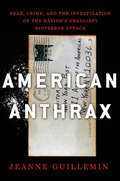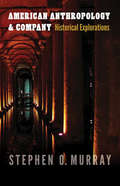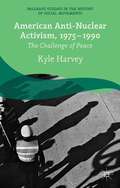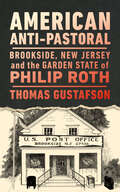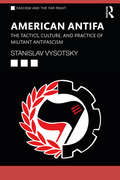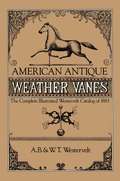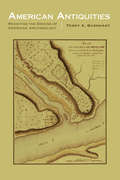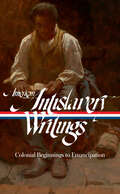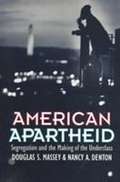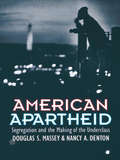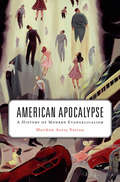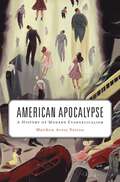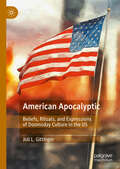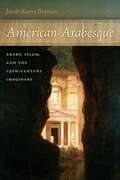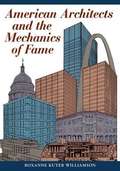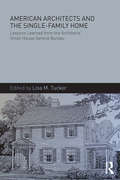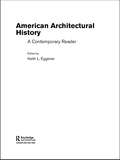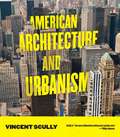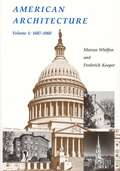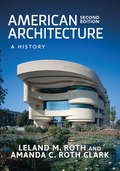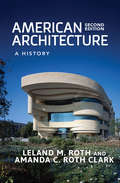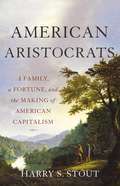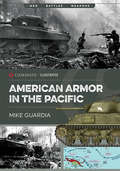- Table View
- List View
American Anthrax: Fear, Crime, and the Investigation of the Nation's Deadliest Bioterror Attack
by Jeanne GuilleminFrom Jeanne Guillemin, one of the world's leading experts on anthrax and bioterrorism, the definitive account of the anthrax investigationIt was the most complex case in FBI history. In what became a seven-year investigation that began shortly after 9/11—with America reeling from the terror attacks of al Qaeda—virulent anthrax spores sent through the mail killed Bob Stevens, a Florida tabloid photo editor. His death and, days later, the discovery in New York and Washington, D.C. of letters filled with anthrax sent shock waves through the nation. Federal agencies were blindsided by the attacks, which eventually killed five people. Taken off guard, the FBI struggled to combine on-the-ground criminal investigation with progress in advanced bioforensic analyses of the letters' contents. While the criminal eluded justice, disinformation swirled around the letters, erroneously linking them to Iraq's WMD threat and foreign bioterrorism. Without oversight, billions were lavished on biomedical defenses against anthrax and other exotic diseases. Worst of all, faith in federal justice faltered. American Anthrax is a gripping tale of terror, intrigue, madness, and cover-up.
American Anthropology and Company: Historical Explorations (Critical Studies in the History of Anthropology)
by Stephen O. MurrayIn American Anthropology and Company, linguist and sociologist Stephen O. Murray explores the connections between anthropology, linguistics, sociology, psychology, and history, in broad-ranging essays on the history of anthropology and allied disciplines. On subjects ranging from Native American linguistics to the pitfalls of American, Latin American, and East Asian fieldwork, among other topics, American Anthropology and Company presents the views of a historian of anthropology interested in the theoretical and institutional connections between disciplines that have always been in conversation with anthropology. Recurring characters include Edward Sapir, Alfred Kroeber, Robert Redfield, W. I. and Dorothy Thomas, and William Ogburn. While histories of anthropology rarely cross disciplinary boundaries, Murray moves in essay after essay toward an examination of the institutions, theories, and social networks of scholars as never before, maintaining a healthy skepticism toward anthropologists’ views of their own methods and theories.
American Anti-Nuclear Activism, 1975–1990
by Kyle HarveyLooking at national peace organizations alongside lesser-known protest collectives, this book argues that anti-nuclear activists encountered familiar challenges common to other social movements of the late twentieth century.
American Anti-Pastoral: Brookside, New Jersey and the Garden State of Philip Roth (CERES: Rutgers Studies in History)
by Thomas GustafsonOne of the best-known novels taking place in New Jersey, Philip Roth’s 1997 American Pastoral uses the fictional hamlet of Old Rimrock, NJ as a microcosm for a nation in crisis during the cultural upheavals of the 1960s-70s. Critics have called Old Rimrock mythic, but it is based on a very real place: the small Morris county town of Brookside, New Jersey. American Anti-Pastoral reads the events in Roth’s novel in relation to the history of Brookside and its region. While Roth’s protagonist Seymour “Swede” Levov initially views Old Rimrock as an idyllic paradise within the Garden State, its real-world counterpart has a more complex past in its origins as a small industrial village, as well as a site for the politics of exclusionary zoning and a 1960s anti-war protest at its celebrated 4th of July parade. Literary historian and Brookside native Thomas Gustafson casts Roth’s canonical novel in a fresh light as he studies both Old Rimrock in comparison to Brookside and the novel in relationship to NJ literature, making a case for it as the Great New Jersey novel. For Roth fans and history buffs alike, American Anti-Pastoral peels back the myths about the bucolic Garden State countryside to reveal deep fissures along the fault-lines of race and religion in American democracy.
American Antifa: The Tactics, Culture, and Practice of Militant Antifascism (Routledge Studies in Fascism and the Far Right)
by Stanislav VysotskySince the election of President Trump and the rise in racist and white supremacist activity, the militant antifascist movement known as antifa has become increasingly active and high profile in the United States. This book analyzes the tactics, culture, and practices of the movement through a combination of social movement studies and critical criminological perspectives. Based on extensive fieldwork and interviews with activists, this book is the first scholarly sociological analysis of contemporary antifascist activism in the United States. Drawing on social movement studies, subculture studies and critical criminology, it explains antifa's membership, their ideology, strategy, tactics and use of culture as a weapon against the far right. It provides the most detailed account of this movement and also cuts through much of the mythology and common misunderstandings about it. This book will be of interest to scholars and students in sociology, political science, anthropology, criminology, and history; however, a general audience would also be interested in the explanation of what drives antifa tactics and strategy in light of the high-profile conflicts between fascists and antifascists.
American Antique Weather Vanes: The Complete Illustrated Westervelt Catalog of 1883 (Dover Jewelry and Metalwork)
by A. B. WesterveltWeather vanes were used by the ancient Greeks a hundred years before the birth of Christ; by early Scandinavians on their ships; and were common throughout England since William the Conqueror, and throughout Europe since the French Revolution. American vanes were recorded since the seventeenth century -- among the first known is the copper cockerel, made in 1656 for the Dutch Reformed Church at Albany. The weather vane found a welcome home in the expanding America of the eighteenth and nineteenth centuries. It was a jaunty bit of decoration that served an important utilitarian function and enlivened the whole landscape with its humorous and homespun motifs, bold and vigorous design, and spirited air of American individualism and independence.By the late nineteenth century weather vane design and manufacture had reached full maturity. There were several firms throughout the United States specializing in weather vanes, some of which issued catalogs displaying their wares. Among the largest and most important of these companies was A. B. & W. T. Westervelt of New York City, whose extensive illustrated 1883 catalog, featuring over 550 copper weather vanes and finials, is herein reprinted.This excellent primary source by one of the principal manufacturers of American weather vanes offers an extraordinarily wide range of styles and motifs, including: horse with sulky and driver, cow or bull, gun and cap, goddess of liberty, dog, ram or sheep, Indian chief, hook and ladder with number, oxen, ocean steamer, Roman banneret and scroll, rooster, cannon, fish, pen, locomotive and tender, initials, lion, liberty cap and arrows, malter's shovel and brew barrel, and many more. Vanes are illustrated with line engravings, are especially well suited to reproduction (all royalty-free), and are accompanied by relevant information on size, materials, and original prices.Indispensable for the architect, antique collector, and historian, this collection of authentic weather vane designs will also prove to be an unusually rich source of royalty-free art and graphic inspiration for the artist, designer, and crafter.
American Antiquities: Revisiting the Origins of American Archaeology (Critical Studies in the History of Anthropology)
by Terry A. BarnhartWriting the history of American archaeology, especially concerning eighteenth and nineteenth-century arguments, is not always as straightforward or simple as it might seem. Archaeology’s trajectory from an avocation, to a semi-profession, to a specialized, self-conscious profession was anything but a linear progression. The development of American archaeology was an organic and untidy process, which emerged from the intellectual tradition of antiquarianism and closely allied itself with the natural sciences throughout the nineteenth century—especially geology and the debate about the origins and identity of indigenous mound-building cultures of the eastern United States. Terry A. Barnhart examines how American archaeology developed within an eclectic set of interests and equally varied settings. He argues that fundamental problems are deeply embedded in secondary literature relating to the nineteenth-century debate about “Mound Builders” and “American Indians.” Some issues are perceptual, others contextual, and still others basic errors of fact. Adding to the problem are semantic and contextual considerations arising from the accommodating, indiscriminate, and problematic use of the term “race” as a synonym for tribe, nation, and race proper—a concept and construct that does not, in all instances, translate into current understandings and usages. American Antiquities uses this early discourse on the mounds to frame perennial anthropological problems relating to human origins and antiquity in North America.
American Antislavery Writings: Colonial Beginnings to Emancipation
by Various James G. BaskerFor the 150th anniversary of the Emancipation Proclamation, here is a collection of writings that charts our nation's long, heroic confrontation with its most poisonous evil. It's an inspiring moral and political struggle whose evolution parallels the story of America itself. To advance their cause, the opponents of slavery employed every available literary form: fiction and poetry, essay and autobiography, sermons, pamphlets, speeches, hymns, plays, even children's literature. This is the first anthology to take the full measure of a body of writing that spans nearly two centuries and, exceptionally for its time, embraced writers black and white, male and female. Benjamin Franklin, Thomas Paine, Phillis Wheatley, and Olaudah Equiano offer original, even revolutionary, eighteenth century responses to slavery. With the nineteenth century, an already diverse movement becomes even more varied: the impassioned rhetoric of Frederick Douglass and William Lloyd Garrison joins the fiction of Harriet Beecher Stowe, Louisa May Alcott, and William Wells Brown; memoirs of former slaves stand alongside protest poems by John Greenleaf Whittier, Henry Wadsworth Longfellow, and Lydia Sigourney; anonymous editorials complement speeches by statesmen such as Charles Sumner and Abraham Lincoln. Features helpful notes, a chronology of the antislavery movement, and a16-page color insert of illustrations.
American Apartheid: Segregation and the Making of the Underclass
by Nancy Denton Douglas MasseyA study of segregation as the root of many problems facing African-Americans today.
American Apartheid: Segregation and the Making of the Underclass
by Douglas MasseyThis powerful and disturbing book clearly links persistent poverty among blacks in the United States to the unparalleled degree of deliberate segregation they experience in American cities. American Apartheid shows how the black ghetto was created by whites during the first half of the twentieth century in order to isolate growing urban black populations. It goes on to show that, despite the Fair Housing Act of 1968, segregation is perpetuated today through an interlocking set of individual actions, institutional practices, and governmental policies. In some urban areas the degree of black segregation is so intense and occurs in so many dimensions simultaneously that it amounts to “hypersegregation.” Douglas Massey and Nancy Denton demonstrate that this systematic segregation of African Americans leads inexorably to the creation of underclass communities during periods of economic downturn. Under conditions of extreme segregation, any increase in the overall rate of black poverty yields a marked increase in the geographic concentration of indigence and the deterioration of social and economic conditions in black communities. As ghetto residents adapt to this increasingly harsh environment under a climate of racial isolation, they evolve attitudes, behaviors, and practices that further marginalize their neighborhoods and undermine their chances of success in mainstream American society. This book is a sober challenge to those who argue that race is of declining significance in the United States today.
American Apocalypse: A History of Modern Evangelicalism
by Matthew Avery SuttonThe first comprehensive history of modern American evangelicalism to appear in a generation, American Apocalypse shows how a group of radical Protestants, anticipating the end of the world, paradoxically transformed it. Matthew Avery Sutton draws on extensive archival research to document the ways an initially obscure network of charismatic preachers and their followers reshaped American religion, at home and abroad, for over a century. Perceiving the United States as besieged by Satanic forces: communism and secularism, family breakdown and government encroachment, Billy Sunday, Charles Fuller, Billy Graham, and others took to the pulpit and airwaves to explain how Biblical end-times prophecy made sense of a world ravaged by global wars, genocide, and the threat of nuclear extinction. Believing Armageddon was nigh, these preachers used what little time was left to warn of the coming Antichrist, save souls, and prepare the nation for God's final judgment. By the 1980s, President Ronald Reagan and conservative Republicans appropriated evangelical ideas to create a morally infused political agenda that challenged the pragmatic tradition of governance through compromise and consensus. Following 9/11, the politics of apocalypse continued to resonate with an anxious populace seeking a roadmap through a world spinning out of control. Premillennialist evangelicals have erected mega-churches, shaped the culture wars, made and destroyed presidential hopefuls, and brought meaning to millions of believers. Narrating the story of modern evangelicalism from the perspective of the faithful, Sutton demonstrates how apocalyptic thinking continues to exert enormous influence over the American mainstream today.
American Apocalypse: A History of Modern Evangelicalism
by Matthew Avery SuttonIn the first comprehensive history of American evangelicalism to appear in a generation, Matthew Sutton shows how charismatic Protestant preachers, anticipating the end of the world, paradoxically transformed it. Narrating the story from the perspective of the faithful, he shows how apocalyptic thinking influences the American mainstream today.
American Apocalypse: The Six Far-Right Groups Waging War on Democracy
by Rena SteinzorA thorough analysis of the right-wing interests contributing to the downfall of American democracy The war on American democracy is at a fever pitch. Such a corrosive state of affairs did not arise spontaneously up from the people but instead was pushed, top-down, by six private sector special interest groups—big business, the House Freedom Caucus, the Federalist Society, Fox News, white evangelicals, and armed militias. In American Apocalypse Rena Steinzor argues that these groups are nothing more than well-financed armies fighting a battle of attrition against the national government, with power, money, and fame as their central motivations. The book begins at the end of Lyndon Johnson's presidency, when the modern regulatory state was born. Agencies like the Environmental Protection Agency and the Food and Drug Administration ensured that everything from our air to our medicine was safe. But efforts to thwart this "big government" agenda began swiftly, albeit in the shadows. Business leaders built a multi-billion dollar presence in the Capitol, and the rest of the six interest groups soon followed. While the groups do not coordinate their attacks, and sometimes their short-term goals even conflict, their priorities fall within a surprisingly tight bullseye: the size and power of the administrative state. In the near-term, their campaigns will bring the crucial functions of government to a halt, which will lead to immediate suffering by the working classes, and a rapid deterioration of race relations. Over the long-term, as the prevalence of global pandemics and climate crises increase, an incapacitated national government will usher in unimaginable harm. This book is the first to conceptualize these groups together, as one deconstructive and awe-inspiring force. Steinzor delves into each of their histories, mapping the strategies, tactics, and characteristics that make them so powerful. She offers the most comprehensive story available about the downfall of American democracy, reminding us that only by recognizing what we are up against can we hope to bring about change.
American Apocalyptic: Beliefs, Rituals, and Expressions of Doomsday Culture in the US
by Juli L. GittingerIn this book, Juli Gittinger argues that America’s fascination (obsession?) with the apocalypse is a synthesis of religion, popular culture, and politics in a way that is particular to the US and consonant with mythological-historical narratives of America. As a result, we can identify American apocalypticism as a sort of religion in itself that is closely tied to “civil religion,” that has a worldview and rituals that create identifiable communities and connects American mythology to apocalyptic anxieties. Gittinger discusses how various cultures and groups form as a result of this obsession, and that these communities form their own rituals and responses in various forms of “prepping” or survivalist practices. She lays out an argument for a broad eschatology prevalent in the US that extends beyond traditional religious designations to form an apocalyptic worldview that is built into our narrative as a country, as well as furthered by popular culture and media’s contributionto apocalyptic anxieties. Subsequently, Gittinger uses case studies of apocalyptic events—current or speculative—that reveal how our anxieties about the end of the world (as we know it) inform our culture, as well as religious narratives that emerge from such crises.
American Arabesque: Arabs and Islam in the Nineteenth Century Imaginary (America and the Long 19th Century #11)
by Jacob Rama BermanPart of the American Literatures Initiative Series American Arabesque examines representations of Arabs, Islam and the Near East in nineteenth-century American culture, arguing that these representations play a significant role in the development of American national identity over the century, revealing largely unexplored exchanges between these two cultural traditions that will alter how we understand themtoday.Moving from the period of America's engagement in theBarbary Wars through the Holy Land travel mania in the years of Jacksonian expansion and into the writings of romantics such as Edgar Allen Poe, the book argues that not only were Arabs and Muslims prominently featured in nineteenth-century literature, but that the differences writers established between figures such as Moors, Bedouins, Turks and Orientals provide proof of the transnational scope of domestic racial politics. Drawing on both English and Arabic language sources, Berman contends that the fluidity and instabilityof the term Arab as it appears in captivity narratives, travel narratives,imaginative literature, and ethnic literature simultaneously instantiate and undermine definitions of the American nation and American citizenship.
American Architects and the Mechanics of Fame
by Roxanne Ruter WilliamsonWhy does one talented individual win lasting recognition in a particular field, while another equally talented person does not? While there are many possible reasons, one obvious answer is that something more than talent is requisite to produce fame. The "something more" in the field of architecture, asserts Roxanne Williamson, is the association with a "famous" architect at the moment he or she first receives major publicity or designs the building for which he or she will eventually be celebrated. In this study of more than six hundred American architects who have achieved a place in architectural histories, Williamson finds that only a small minority do not fit the "right person–right time" pattern. She traces the apprenticeship connection in case studies of Louis Sullivan, Frank Lloyd Wright, Henry Hobson Richardson, the firm of McKim, Mead & White, Latrobe and his descendants, the Bulfinch and Renwick Lines, the European immigrant masters, and Louis Kahn. Although she acknowledges and discusses the importance of family connections, the right schools, self-promotion, scholarships, design competition awards, and promotion by important journals, Williamson maintains that the apprenticeship connection is the single most important predictor of architectural fame. She offers the intriguing hypothesis that what is transferred in the relationship is not a particular style or approach but rather the courage and self-confidence to be true to one's own vision. Perhaps, she says, this is the case in all the arts. American Architects and the Mechanics of Fame is sure to provoke thought and comment in architecture and other creative fields.
American Architects and the Single-Family Home: Lessons Learned from the Architects' Small House Service Bureau
by Lisa M. TuckerAmerican Architects and the Single-Family Home explains how a small group of architects started the Architects’ Small House Service Bureau in 1919 and changed the course of twentieth-century residential design for the better. Concepts and principles they developed related to public spaces, private spaces, and service spaces for living; details about the books they published to promote good design; as well as new essays from contemporary practitioners will inspire your own designs. More than 200 black and white images.
American Architectural History: A Contemporary Reader
by Keith Eggener<p>This major new text presents a collection of recent writings on architecture and urbanism in the United States, with topics ranging from colonial to contemporary times. In terms of content and scope, there is no collection, in or out of print, directly comparable to this one. The essays are drawn from the past twenty years' of publishing in the field, arranged chronologically from colonial to contemporary and accessible in thematic groupings, contextualized and introduced by Keith Eggener. <p>Drawing together 24 illustrated essays by major and emerging scholars in the field, American Architectural History is a valuable resource for students of the history of American art, architecture, urbanism, and material culture.</p>
American Architecture and Urbanism
by Vincent ScullyA classic book authored by the foremost architectural historian in America, this fully illustrated history of American architecture and city planning is based on Vincent Scully's conviction that architecture and city planning are inseparably linked and must therefore be treated together. He defines architecture as a continuing dialogue between generations which creates an environment across time. This definitive survey extends beyond the cities themselves to the American scene as a whole, which has inspired the reasonable balanced, closed and ordered forms, and above all the probity, that he feels typifies American architecture.
American Architecture and Urbanism
by Vincent ScullyA classic book authored by the foremost architectural historian in America, this fully illustrated history of American architecture and city planning is based on Vincent Scully's conviction that architecture and city planning are inseparably linked and must therefore be treated together. He defines architecture as a continuing dialogue between generations which creates an environment across time. This definitive survey extends beyond the cities themselves to the American scene as a whole, which has inspired the reasonable balanced, closed and ordered forms, and above all the probity, that he feels typifies American architecture.
American Architecture: 1607-1860
by Marcus Whiffen Frederick KoeperThe first volume of a two-volume survey of American Architecture, this book covers architectural developments from Jamestown to the Civil War.
American Architecture: A History
by Amanda C. Clark Leland M. RothThis widely acclaimed, highly illustrated introduction to the history of American architecture is now fully revised throughout. American Architecture introduces readers to the major developments that shaped the American-built environment from the first Americans to the present, from the everyday vernacular to the high style of aspiration.Significant updates include: A new chapter on the 21st century, detailing the green architecture movement and LEED status architecture, the influence of CAD design on recent architecture, the necessity of sustainable design, the globalization of architecture and international architects, and some of the preservation issues facing architecture today. An expanded section on Native American architecture including contemporary design by Native American architects, expanded discussions on architectural education and training, more examples of women architects and designers, and a thoroughly expanded glossary to help today's readers. A revised and expanded art program, including over 640 black and white images, and a new 32-page, full-color insert featuring over 60 new color images.American Architecture describes the impact of changes in conceptual imagery, style, building technology, landscape design, vernacular construction, and town-planning theory throughout U.S. history. Eleven chronologically organized chapters chart the social, cultural, and political forces that shaped the growth and development of American towns, cities, and suburbs, while providing full description, analysis, and interpretation of buildings and their architects. Accessible and engaging, American Architecture continues to set the standard as a guide, study, and reference.
American Architecture: A History
by Leland M. RothMore than fifteen years after the success of the first edition, this sweeping introduction to the history of architecture in the United States is now a fully revised guide to the major developments that shaped the environment from the first Americans to the present, from the everyday vernacular to the high style of aspiration. Eleven chronologically organized chapters chart the social, cultural, and political forces that shaped the growth and development of American towns, cities, and suburbs, while providing full description, analysis, and interpretation of buildings and their architects. The second edition features an entirely new chapter detailing the green architecture movement and architectural trends in the 21st century. Further updates include an expanded section on Native American architecture and contemporary design by Native American architects, new discussions on architectural education and training, more examples of women architects and designers, and a thoroughly expanded glossary to help today's readers. The art program is expanded, including 640 black and white images and 62 new color images. Accessible and engaging, American Architecture continues to set the standard as a guide, study, and reference for those seeking to better understand the rich history of architecture in the United States.
American Aristocrats: A Family, a Fortune, and the Making of American Capitalism
by Harry S. StoutThe story of an ambitious family at the forefront of the great middle-class land grab that shaped early American capitalismAmerican Aristocrats is a multigenerational biography of the Andersons of Kentucky, a family of strivers who passionately believed in the promise of America. Beginning in 1773 with the family patriarch, a twice-wounded Revolutionary War hero, the Andersons amassed land throughout what was then the American west. As the eminent religious historian Harry S. Stout argues, the story of the Andersons is the story of America's experiment in republican capitalism. Congressmen, diplomats, and military generals, the Andersons enthusiastically embraced the emerging American gospel of land speculation. In the process, they became apologists for slavery and Indian removal, and worried anxiously that the volatility of the market might lead them to ruin.Drawing on a vast store of Anderson family records, Stout reconstructs their journey to great wealth as they rode out the cataclysms of their time, from financial panics to the Civil War and beyond. Through the Andersons we see how the lure of wealth shaped American capitalism and the nation's continental aspirations.
American Armor in the Pacific (Casemate Illustrated #Cis0012)
by Mike GuardiaAn illustrated history of the American tanks deployed to the Pacific theater during World War II and the conflicts they faced there. This volume in the Casemate Illustrated series explores American armor during the Pacific Campaign of the Second World War, from 1942 to 1945. In this period, there were over twenty major tank battles and operations in which tanks provided heavy support to infantry units. These operations included the Battle of Tarawa and the Bougainville Campaign. American Armor in the Pacific also features the strategies and tactics of the opposing forces, relying heavily on first-person accounts. This book examines the Pacific theater and how American armor was employed with great success in that theater of war. It also offers detailed information on American and Japanese armored forces, including development, equipment, capabilities, organization, and order of battle. Praise for American Armor in the Pacific &“Packed with over 100 images . . . exactly what a reader interested in the armored battles fought between the Imperial Japanese war machine and U.S. military would want to see.&” —Globe at War
